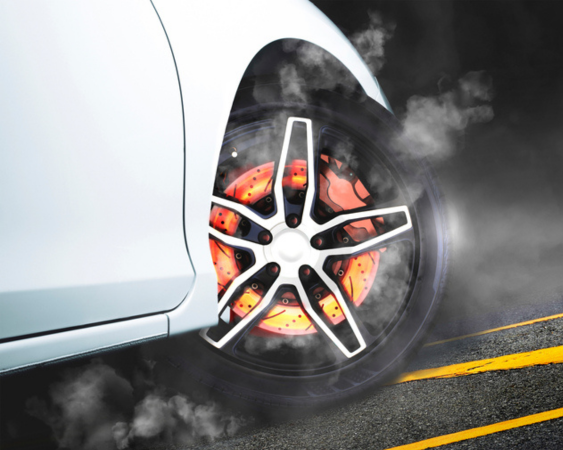At Griffis Automotive Repair, we pride ourselves not only in delivering top-tier repair services but also in educating our customers. After all, understanding your vehicle is the first step towards optimal maintenance. Today, let’s dive deep into the world of brake noises and uncover what they truly signify.
1. The High-Pitched Squeal
Many of us have experienced that sharp, squeaking noise when we apply the brakes. More often than not, it’s the result of the brake pads vibrating. These pads can sometimes vibrate at a frequency that’s audible, producing that tell-tale squeal. However, it can also be a warning sign. Manufacturers install a small device called an indicator on the brake pads. When the pads wear down, this indicator touches the rotor, creating a squeal to alert you it’s time for a replacement.
2. The Disturbing Grind
If you hear a grinding sound when you brake, it’s essential not to ignore it. This usually indicates the brake pads have worn down completely, causing the metal of the brake pad backing plate to grind against the metal of the rotors. If left unchecked, this can result in significant damage, requiring more extensive repairs.
3. Rattle and Roll
A rattling noise can be a bit tricky. If you hear it when the brakes are not applied, it could be due to slightly worn-out brake hardware, caliper guide pins, or the brake backing plates. However, if this sound occurs while braking, it’s a sign that something might be loose or out of place.
4. Clicks and Clacks
Hearing a clicking sound during braking? This might be because of a damaged or missing retainer or clip that holds the brake pads in place. This clip ensures the pads stay aligned with the rotor. If the pads can move freely, they can produce that clicking noise.
5. Pulsations and Vibrations
If your brake pedal seems to be pulsating or vibrating as you press down, this is often a sign of warped rotors. Rotors can become warped from excessive heat generated during braking, especially under extreme conditions. This warping can result in an uneven surface for the brake pads to grip, leading to that pulsating sensation.
Bringing it All Together: What Should You Do?
Firstly, remember that regular maintenance is the key. Keeping a routine check on your brakes can help you identify potential issues before they escalate. If you hear or feel something unusual, it’s always a good idea to consult with a professional.
At Griffis Automotive Repair, we believe in proactive care. If you’re in the Orlando area and you’re concerned about any noises or behaviors you’ve noticed from your vehicle, don’t wait. Reach out to us at (407) 896-2225, visit our shop at 1400 S. Bumby Ave., Orlando, FL 32806, or check out our services on our website at https://griffsautomotiverepair.com.
Understanding your car’s language can be the key to longevity and safe driving. Never underestimate the importance of being in tune with your vehicle. After all, it’s not just about transportation; it’s about ensuring safety, performance, and peace of mind.


